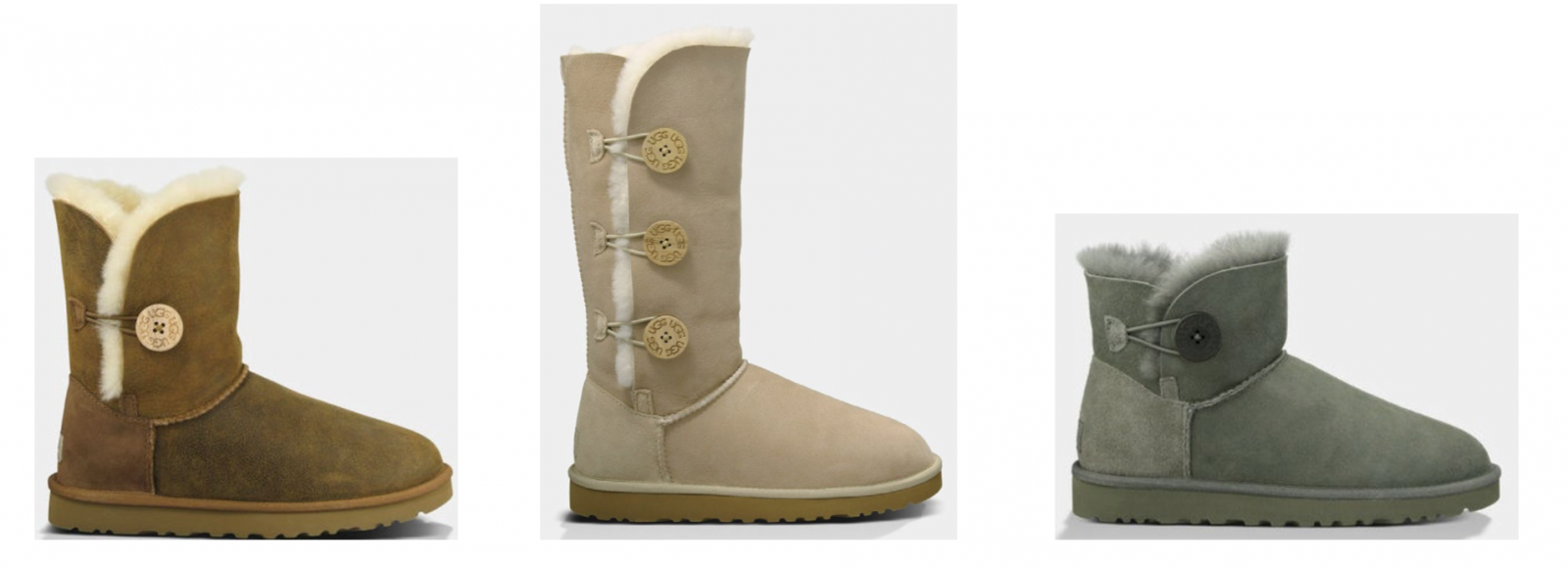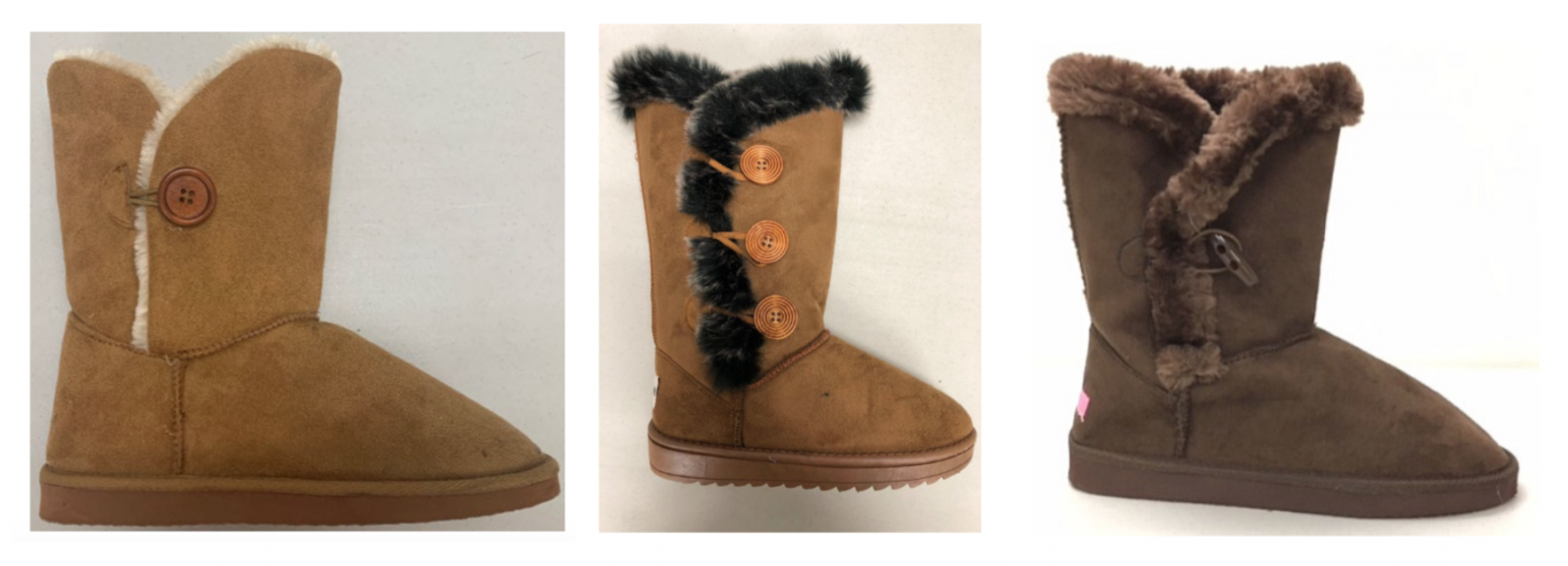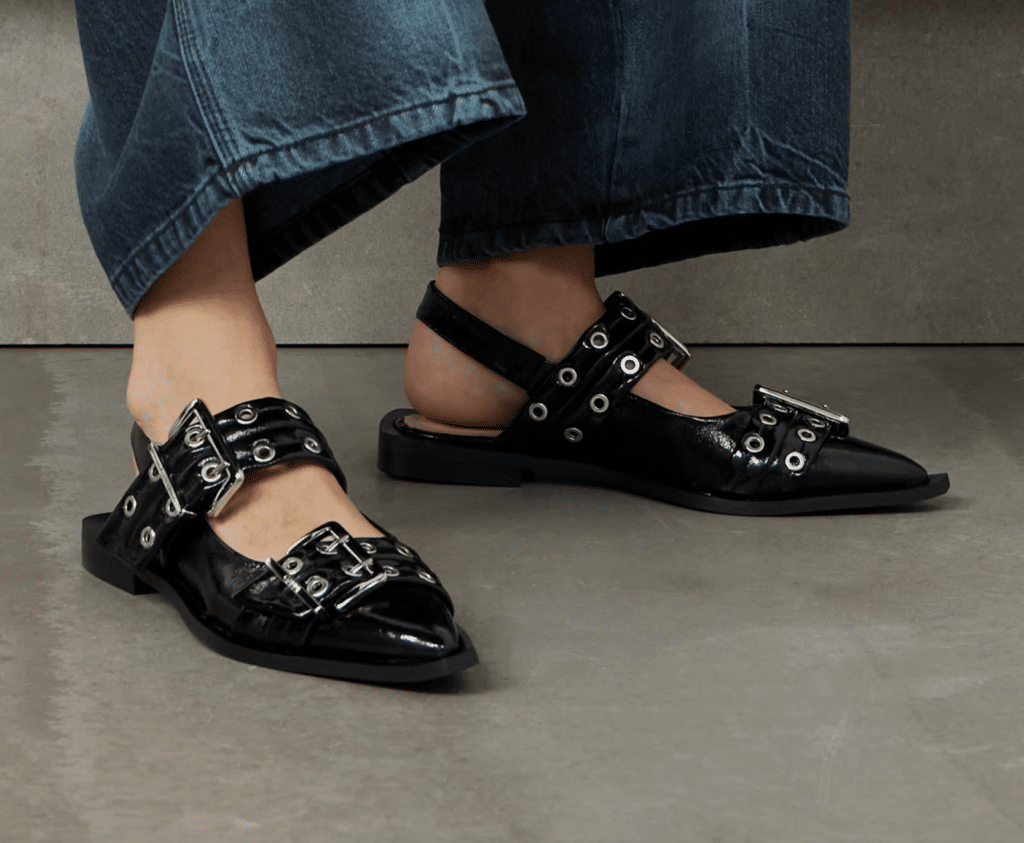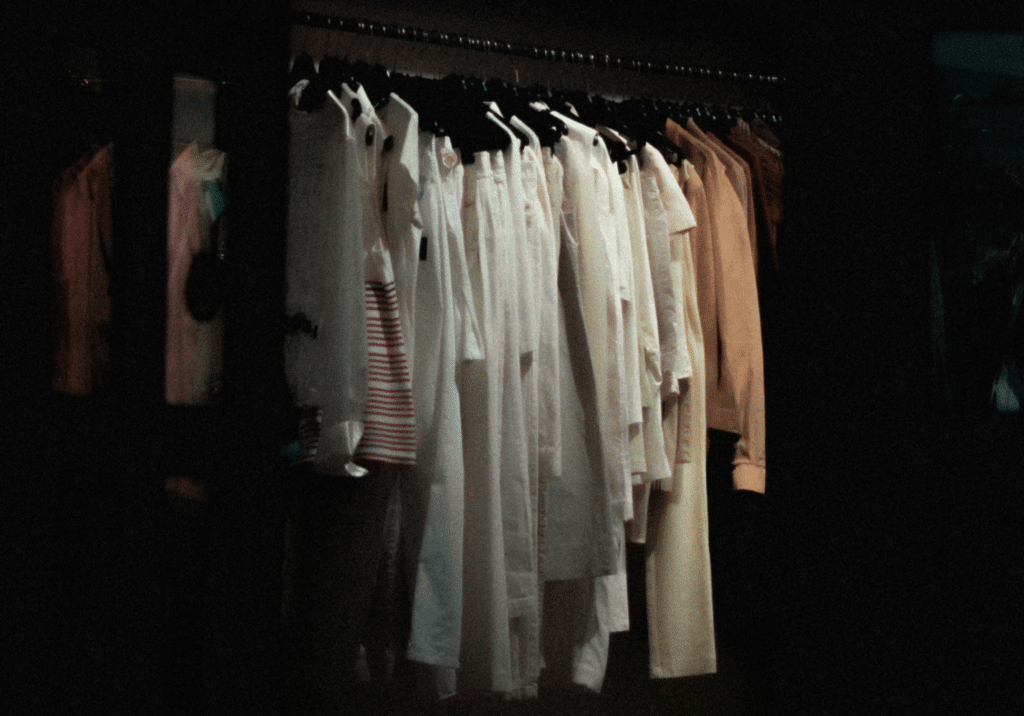On the heels of landing a win the David v. Goliath case it filed against a much smaller Australian boot-maker, UGG is taking on a few companies a bit closer to its own size. UGG’s parent company Deckers filed a handful of lawsuits this week against Wal-Mart Stores, Kmart, and Aeropostale in California federal court, as well as one against footwear wholesaler RFA Group in federal court in New York, alleging that they ran afoul of the law by selling copycat versions of its popular sheepskin-lined boots.
In the lawsuits, California-based Deckers accuses the individual defendants of trade dress infringement, patent infringement, and unfair competition in connection with their sale of lookalike boot. In particular, Deckers points to a design patent registration (D599,999) for the ornamental design for a boot, as well as its unregistered “Bailey Button Trade Dress” trade dress, which covers to a “classic suede boot” with “exposed fleece-type lining, curved top edges on the overlapping panels, [and] one or more buttons (depending on the height of the boot) prominently featured on the lateral side of the boot shaft adjacent the overlapping panels, on the front panel.”
In terms of its trade dress protection, which extends to the visual appearance of a product as long as it signifies the source of the product to consumers, Deckers claims that the button design boot maintains the necessary level of secondary meaning amongst consumers (or that consumers link the design to a single source) in order to enjoy protection.
 UGGs’ Bailey Button Boot design
UGGs’ Bailey Button Boot design
Deckers’ evidence of secondary meaning? In addition to its “long use [of the trade dress] and its significant advertising” of it, the boot “has been featured in connection with various celebrities, has received a large volume of unsolicited media attention, and has graced the pages of many popular magazines nationwide and internationally.” Still yet, the boot-maker says that it has “has sold hundreds of millions of dollars’ worth of UGG products bearing the Bailey Button Boot Trade Dress,” therefore enabling the Bailey Button design to “achieve widespread acceptance and recognition among the consuming public and trade throughout the United States” as a product of UGG.
With such rights in mind, Deckers asserts that the defendants’ infringement was done “intentionally, fraudulently, maliciously, willfully, wantonly, and oppressively, with intent to injure Deckers in its business and with conscious disregard for Deckers’ rights.” The company further alleges that in “an effort to exploit Decker’s reputation in the market,” the defendants have “deprived Deckers of the right to control the use of its intellectual property.”
As for the strength of Deckers’ trade dress claims, alone, University of New Hampshire professor Alexandra Roberts, who specializes in trademarks, told TFL that the design of an UGG boot in its simplest form has functionality issues. The basic boot design suffers from “either utilitarian functionality (the cheapest, most direct way to make the warm shearling boot) or aesthetic functionality (others need to be able to compete in the market for a style of boot that’s popular not because of who makes it but because of what it is),” which could serve as a bar to protection, as trade dress only covers nonfunctional elements of a product.
 Some of the defendants’ allegedly infringing boots
Some of the defendants’ allegedly infringing boots
The design of the Bailey Button boot is different, though, as the button, for one thing, is “more aesthetic than functional.” Nonetheless, Roberts says she thinks there is still a “failure to function problem.” In other words, seems unlikely that the appearance of the boot, itself, actually serves to function as a trademark, or indicate the source of the product – which is the purpose of a trademark in the first place.
Deckers is seeking injunctive relief to immediately and permanently prevent the defendants from selling infringing footwear, and monetary damages in a sum to be determined at trial.
The suits join a long list of UGG-specific litigation initiated in recent years by the notoriously litigious Deckers, at least some of which has centered on the button design – with defendants ranging from Gap and H&M to Target and J.C. Penney. Most (if not all) of those suits have settled out of court ahead of trial.
*The cases are Deckers Outdoor Corporation v. Aeropostale, Inc. et al, 2:2019-cv-04411 (C.D.Cal); Deckers Outdoor Corporation v. Wal-Mart Stores, Inc., et al, 2:2019-cv-04414 (C.D.Cal); and Deckers Outdoor Corporation v. The RFA Group NYC, LLC et al, 1:2019-cv-04725 (SDNY).











